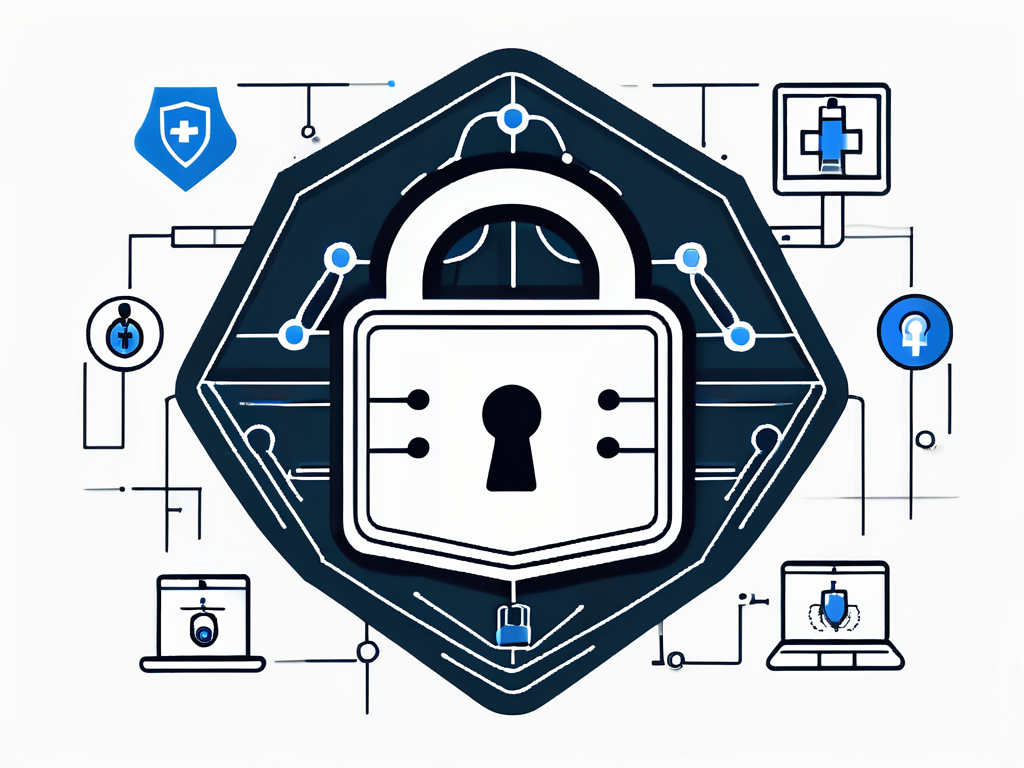In today’s digital age, data security is of utmost importance, especially in the healthcare industry. Patient and clinic information is extremely sensitive and can be subject to various risks if not properly protected. To ensure the safety and confidentiality of this data, it is crucial for healthcare providers to implement robust data security measures. This article will discuss the importance of data security in healthcare, identify potential risks, and provide strategies to minimize data security risks when sharing patient and clinic information.
Understanding the importance of data security in healthcare
In the healthcare industry, data security plays a vital role in building and maintaining patient trust. Patients expect their personal and medical information to be safeguarded and treated with the utmost care. Any breach of this trust can have serious repercussions, both for the patient and the healthcare provider.
Furthermore, data breaches in healthcare can lead to severe legal implications. The General Data Protection Regulation (GDPR), for instance, imposes substantial penalties for failing to protect patient data. Healthcare providers must, therefore, understand the legal framework surrounding data security and ensure compliance to avoid costly consequences.
It is essential for healthcare organisations to implement robust cybersecurity measures to protect sensitive patient data. This includes encryption techniques to secure data both at rest and in transit, multi-factor authentication for accessing patient records, and regular security audits to identify and address vulnerabilities.
Moreover, with the increasing adoption of electronic health records (EHRs) and telemedicine services, the attack surface for cyber threats in healthcare has expanded. Healthcare providers need to stay vigilant and invest in ongoing staff training to educate employees about the latest cybersecurity threats and best practices for data protection.
Identifying potential data security risks in healthcare
One of the first steps in minimising data security risks is to identify and understand the potential threats. Common types of data breaches in healthcare include hacking, phishing attacks, unauthorised access, and physical theft or loss of devices containing patient information.
It is also crucial to recognise the weak points in your data security. This includes assessing vulnerabilities in your network infrastructure, data storage systems, and employee practices. Regular risk assessments and internal audits can help identify and address these weak points.
Furthermore, it is essential to consider the human element in data security. Employees play a significant role in maintaining the security of sensitive information. Providing comprehensive training on data security best practices and protocols can help reduce the risk of human error leading to a data breach. Additionally, implementing strict access controls and monitoring systems can help prevent unauthorised access to patient data.
Implementing effective data security measures
Choosing the right data security tools is paramount to protecting patient and clinic information. It is essential to invest in robust firewalls, encryption software, and intrusion detection systems to prevent unauthorized access to sensitive data. Regularly updating these tools with the latest security patches is equally crucial to stay ahead of potential threats.
Equally important is training staff on data security best practices. Human error is often the root cause of data breaches. By educating employees about the importance of data security, teaching them to recognize and respond to potential threats, healthcare providers can significantly reduce the risk of data breaches.
Furthermore, implementing a multi-factor authentication system adds an extra layer of security to data access. This system requires users to provide two or more forms of verification before granting access to sensitive information, making it harder for cybercriminals to breach the system.
Another vital aspect of data security is conducting regular security audits and risk assessments. These assessments help identify vulnerabilities in the system and potential weak points that could be exploited by hackers. By regularly reviewing and updating security protocols based on these assessments, healthcare providers can proactively strengthen their data security measures and protect patient confidentiality.
Safeguarding patient information during data sharing
When sharing patient information, it is vital to ensure secure data transmission. Using secure communication channels, such as encrypted emails or secure file transfer protocols, minimizes the risk of interception and unauthorized access.
Additionally, healthcare providers must prioritize the security of data during storage and retrieval. Implementing strict access controls and employing encryption methods for data at rest can go a long way in safeguarding patient information. Regularly backing up data ensures that it can be recovered in the event of a breach or system failure.
Furthermore, it is essential for healthcare organisations to conduct regular security audits and risk assessments to identify and address any vulnerabilities in their systems. By staying proactive and vigilant, they can stay one step ahead of potential threats and ensure the confidentiality and integrity of patient data.
Moreover, training staff members on data protection best practices and protocols is crucial in maintaining a culture of security within the organisation. Educating employees on the importance of safeguarding patient information and providing them with the necessary tools and resources can significantly reduce the risk of human error leading to data breaches.
Maintaining clinic information security
Data security is not a one-time effort but an ongoing process. Regular audits and updates to security protocols are essential to adapt to evolving threats and maintain the integrity of clinic information.
Patients rely on healthcare providers to keep their information secure. Responding swiftly and appropriately in the event of a potential data breach is crucial in maintaining patient trust. Developing an incident response plan and conducting regular drills ensures that healthcare providers are well-prepared to handle any security incidents effectively.
Furthermore, it is imperative for clinic staff to undergo regular training on data security best practices. This includes educating employees on the importance of strong password management, recognising phishing attempts, and understanding the risks associated with sharing sensitive information via email or other electronic means. By investing in continuous training, clinics can empower their staff to be vigilant and proactive in safeguarding patient data.
In addition to internal measures, clinics should also consider partnering with reputable cybersecurity firms to conduct regular penetration testing. These tests involve simulated cyber-attacks to identify vulnerabilities in the clinic’s systems and processes. By proactively identifying and addressing weaknesses, clinics can strengthen their defences against real-world threats and enhance overall data security.
The future of data security in healthcare
As technology continues to advance, so do the threats to data security in healthcare. Emerging trends, such as the Internet of Medical Things (IoMT) and artificial intelligence (AI), bring forth new challenges and vulnerabilities. Healthcare providers must stay abreast of these trends and proactively implement data security measures to mitigate risks.
With the ever-increasing volume and complexity of patient and clinic information, healthcare providers also need to embrace innovative solutions. Collaborating with digital marketing agencies focused on healthcare marketing can provide valuable insights and expertise in leveraging tools like Google Ads for promoting data security awareness and best practices.
In recent years, the healthcare industry has seen a surge in cyberattacks targeting sensitive patient data. These attacks not only jeopardise patient privacy but also pose significant financial risks to healthcare organisations. As a result, there is a growing emphasis on implementing robust cybersecurity protocols and training staff to recognise and respond to potential threats effectively.
Moreover, the adoption of blockchain technology in healthcare is gaining traction as a means to enhance data security. Blockchain offers a decentralised and tamper-proof system for storing and sharing sensitive information, reducing the risk of data breaches and unauthorised access. By leveraging blockchain technology, healthcare providers can enhance the integrity and confidentiality of patient data, thereby bolstering trust among patients and stakeholders.
In conclusion, minimizing data security risks when sharing patient and clinic information is imperative for healthcare providers. Understanding the importance of data security, identifying potential risks, implementing effective security measures, and maintaining clinic information security are all key steps in ensuring the protection of sensitive data. By staying informed about emerging trends and working with digital marketing agencies, healthcare providers can stay ahead of potential threats and safeguard patient trust in an increasingly interconnected world.
At Clinic Marketing AI, we understand the critical importance of data security in the healthcare sector. Our CEO, Angelo Rosati, brings a wealth of experience from the intersection of healthcare, marketing, and AI to ensure your clinic stays ahead of the curve. We’re not just about delivering results; we’re about achieving excellence in partnership with your growth. If you’re ready to elevate your clinic’s data security strategies and foster patient trust through cutting-edge digital marketing solutions, Book a Call with Us today. Let’s transform the future of Your Clinic together.




